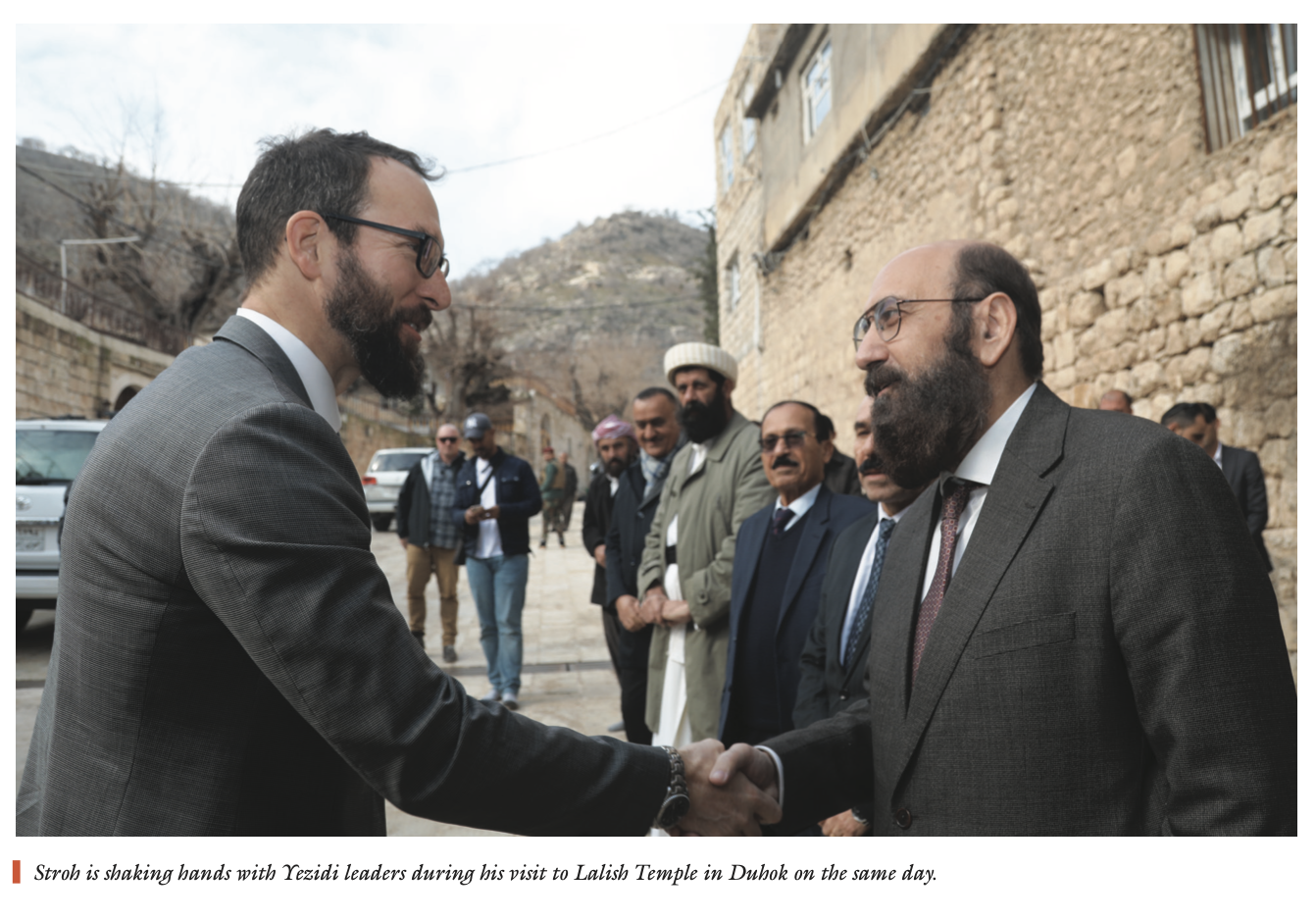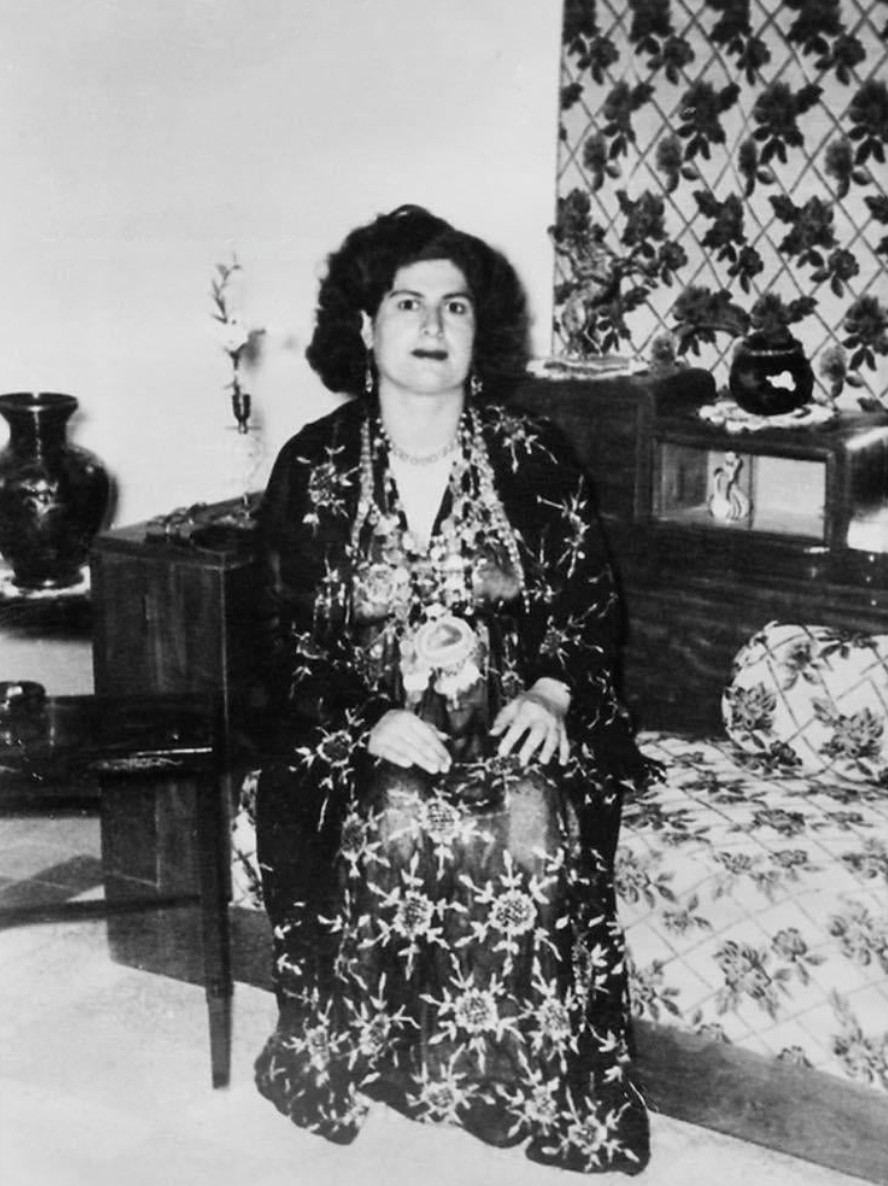U.S. Consul General (USCG) Mark Stroh on Jan. 28 visited the Sheikhan camp for internally displaced persons (IDPs) in the Nineveh Governate and met Yezidi leaders at the Lalish Temple, which has been being restored with over $2 million in funding from the United States since 2019.
“Since 2014, the U.S. government has contributed more than $3.5 billion in humanitarian assistance to Iraq. We value our government, the UN, and local partners working to preserve dignity and create durable solutions to displacement,” the U.S. Consulate General in Erbil posted on X on Jan. 29
Moreover, in another post on X the U.S. Consulate General Erbil underlined it commitment to supporting the Yezidi community, as well as other religious and ethnic minorities in the Kurdistan Region and in Iraq.
In a joint press conference on Jan. 28 with the mayor of Sheikhan District Sardar Sheikh Yahya, Stroh said that the United States strongly welcomed the policy of the Kurdistan Regional Government (KRG) of hosting over one million IDPs and refugees and for not forcing them to return.

A home for the displaced
According to the latest information from the KRG’s Ministry of the Interior Joint Crisis Coordination Center (JCC), there are currently 900,467 registered IDPs and refugees in the Kurdistan Region, comprising 760,189 IDPs, 251,475 refugees from Syria, 7,796 from Turkey, 8,357 from Iran, 652 from Palestine, and 1,013 from other countries.
USCG Stroh added that in many places around the world local communities have not welcomed IDPs and refugees, unlike the Kurdistan Region. “That is a testament to the warmth of hospitality and the resilience of the residents of the Kurdistan Region of Iraq.”
“Education and skill development is critical for the next generation in the Yezidi community. We will never be able to recover and build a better future unless our people have a chance at skilled jobs and move beyond subsistence farming,” Stroh added.“The KRG's policy towards IDPs is voluntary and no one will be forcibly returned,” Srwa Rasul, Director General of the JCC, told Kurdistan Chronicle.
“After the arrival of the terrorist organization ISIS in 2014, the Kurdistan Region hosted 2 million IDPs and refugees who were not accepted by other Iraqi governorates, but on the recommendation of President [Masoud] Barzani, the doors of the Kurdistan Region were opened to the displaced people.”

“We would like to thank the United States for closely monitoring the situation of IDPs and refugees and visiting our camps and centers several times in recent days to investigate this issue and expressed their support,” Rasul said. “(We) appreciate the words of the US Consul General in Erbil [in this regard].”
The U.S. Consulate General also announced an additional $150,000 contribution to the Free Yezidi Foundation to provide two years of after-school and weekend English classes to more than 140 high school students in Sheikhan District, including “some of those who reside in IDP camps to help them better prepare for their life and careers after school.”
Pari Ibrahim, the founder and Executive Director of the Free Yezidi Foundation (FYF), told Kurdistan Chronicle that “we would like to see people return home, but it can’t be forced. We thus oppose any premature closure of the IDP camps until our people no longer choose to live there and can return feeling safe and secure for a better future.”
USCG Stroh also visited the JCCC as well as the Barzani Charity Foundation (BCF) in Sheikhan. The JCCC shared that it was grateful for the ongoing humanitarian support from the U.S. government.

The BCF in a post on X said that “the purpose of the visit was to closely observe the situation of the refugees in Sinjar and find out the reasons why they have not returned to their homeland.”
Meanwhile, USCG Stroh underlined that the U.S. Government fully supports the implementation of the UN-backed Sinjar agreement that was signed between the Iraqi federal government and the KRG in October 2020, with the goal of establishing a new administration, removing militias, and facilitating the return of Yezidi IDPs living there.
Nearly 200,000 Yezidis from Sinjar remain displaced and live in camps in the Kurdistan Region. However, Stroh underscored that while the United States backs the Sinjar agreement, which “will ease and support the return of IDPs to their home communities, we recognize that some families will choose to make new lives here in the Sheikhan area.”
Stroh concluded by thanking Mayor Yahya and his team for “for welcoming so many members of vulnerable communities here to Sheikhan and for seeing the positive in their presence here among you. We are proud to partner with you in this noble effort.”

